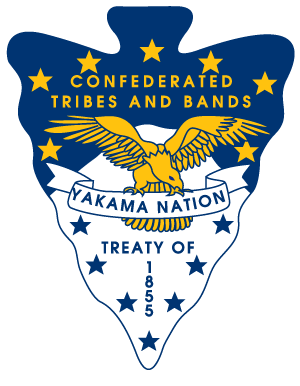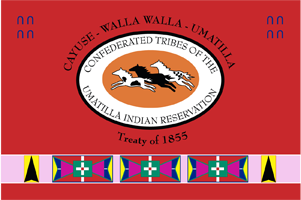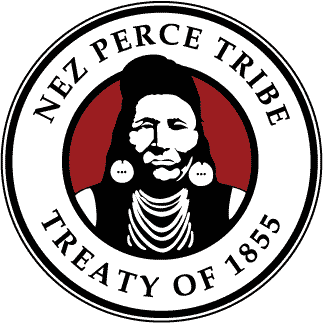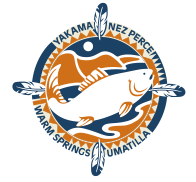words of our leaders




We Need a Columbia Basin Initiative for Salmon, Tribes, and Energy
A message from the Chairs of the four Columbia River treaty fishing tribes: Confederated Tribes and Bands of the Yakama Nation, Confederated Tribes of the Umatilla Indian Reservation, Nez Perce Tribe, and the Confederated Tribes of the Warm Springs Reservation of Oregon.
For our people to survive, we need salmon. Without salmon, there can be no Salmon People. We have a sacred relationship with – and obligation to – the salmon populations that call Nch’í Wána (Columbia River) home.
For nearly 100 years, Columbia and Snake River dams have been built and then operated – to this day and every day – on tribal homelands. The dams became a foundation of the modern Northwest economy. But that has come at an unjust price for Tribal Nations. Our peoples’ homes were flooded, our sacred sites destroyed, and the value of our lands and waters continues to be extracted in a manner that negatively impacts our natural resources. Salmon, our First Food, have been decimated.
Despite decades of dedicated restoration effort, salmon populations in the Columbia River Basin are on the brink of extinction.
This point of no return threatens salmon themselves, and our way of life. It violates the treaties our Nations hold with the United States.
This status quo is untenable. To avoid extinction, we must act now.
We urgently need a comprehensive Columbia Basin Restoration Initiative that restores salmon and other native fish populations to healthy and abundant levels; honors federal commitments to Tribal Nations; and delivers affordable, clean power.
Comprehensive resolution cannot and need not distract from a solution that brings immediate action to a salmon extinction crisis that is on a horizon of years, not decades.
Changes to the Columbia Basin are inevitable, and managing those changes will be important.
The regional energy landscape is shifting dramatically, with solar, wind, battery storage and energy efficiency at the forefront. The Northwest dams were built for a different era. The warming climate is changing snowmelt patterns, making some of those dams less useful and even more harmful.
Aging federal dams also have increasing operation, maintenance and program costs, which the region and Congress have failed to fully fund. Unmet budget needs for U.S Army Corps of Engineers programs alone are currently estimated at nearly $1 billion, with over $100 million attributable to the lower Snake River Dams alone. In addition, 21 lower Snake River dam turbines are due to be replaced in the coming decade, costing at least an additional $600 million.
Against this backdrop, salmon numbers continue downward. The 10-year average of salmon returns for the Columbia River basin is less than 20% of regional goals, with some stocks, such as those in the Snake River, at extinction-threshold levels.
If we don’t act, extinction of many Columbia River salmon species is not a possibility – it’s a guarantee. That is unacceptable. This is not a moment for cost-benefit calculations. The cost of extinction of Columbia River salmon would be incalculable.
The Affiliated Tribes of Northwest Indians – representing 57 tribes from Oregon, Washington, Idaho, Southeast Alaska, Western Montana and Northern California – recently passed a resolution calling on federal and state leaders “to ensure that the bold actions needed for salmon and river restoration in the Columbia Basin are taken.”
President Biden has voiced his support, saying he is “committed to working with the tribal leaders here, as well as Sens. Patty Murray, Maria Cantwell and Rep. Mike Simpson to bring healthy and abundant salmon runs back.”
Three key actions are necessary now to restore fish to healthy and harvestable levels for all.
First, fully fund habitat restoration work throughout the Columbia River Basin.
Second, replace the benefits of the four lower Snake River dams to enable breaching to restore the migration corridor to the best remaining salmon habitat in the lower United States.
Third, salmon must be returned to their native habitat in the upper Columbia River.
All three actions are “essential” to salmon recovery, as the National Oceanic and Atmospheric Administration has confirmed.
In addition, management of fish and fish habitat in the Basin should be returned to Tribal Nations, states and federal fisheries services, where it belongs.
Currently, the Bonneville Power Administration – a federal power marketing agency whose job is to market and sell power generated from the Columbia and Snake River dams – plays a lead decision-making role in the recovery of salmon. Federal power marketing agencies should not be dictating fish management and restoration.
Some of the work on a comprehensive solution has already begun. Washington Sens. Maria Cantwell and Patty Murray have secured funding for salmon recovery work in recent legislation. Idaho Rep. Mike Simpson’s Columbia Basin Initiative, released in 2021, shows progress and innovation are bipartisan.
Murray and Washington Gov. Jay Inslee in their 2022 Snake River Dams Benefit Replacement Report called extinction “categorically unacceptable” and showed that replacing the services of the Lower Snake River dams is feasible. The state legislature recently approved funding for planning to replace those services.
To avoid extinction, we must build on these efforts now.
As tribal leaders, we know the “choice” between salmon and energy is false. It comes from a mindset of scarcity and fear, rather than abundance, optimism and determination.
Salmon People know the time is now for a new approach to managing the Columbia River Basin. False either/or choices must be rejected. Affordable clean energy can be maintained and improved, the incalculable cost of salmon extinction can be rejected, and our rivers can indeed again be filled with precious fish.

Chair Gerald Lewis
Yakama Nation Tribal Council

Chair Kat Brigham
Confederated Tribes of the Umatilla Indian Reservation Board of Trustees

Chair Shannon F. Wheeler
Nez Perce Tribal Executive Committee

Chair Jonathan W. Smith, Sr.
Confederated Tribes of the Warm Springs Reservation of Oregon Tribal Council
Additional Resources
Salmon restoration is a matter of ecological, cultural survival | Opinion editorial by Claudia Kauffman D-Kent, a member of the Nez Perce Tribe and the Washington State Senate, where she represents the 47th Legislative District
Columbia River Salmon and Other Native Fish Request for Information | Council on Environmental Quality request for information, Federal Register, Vol. 88, No. 86, Thursday, May 4, 2023
